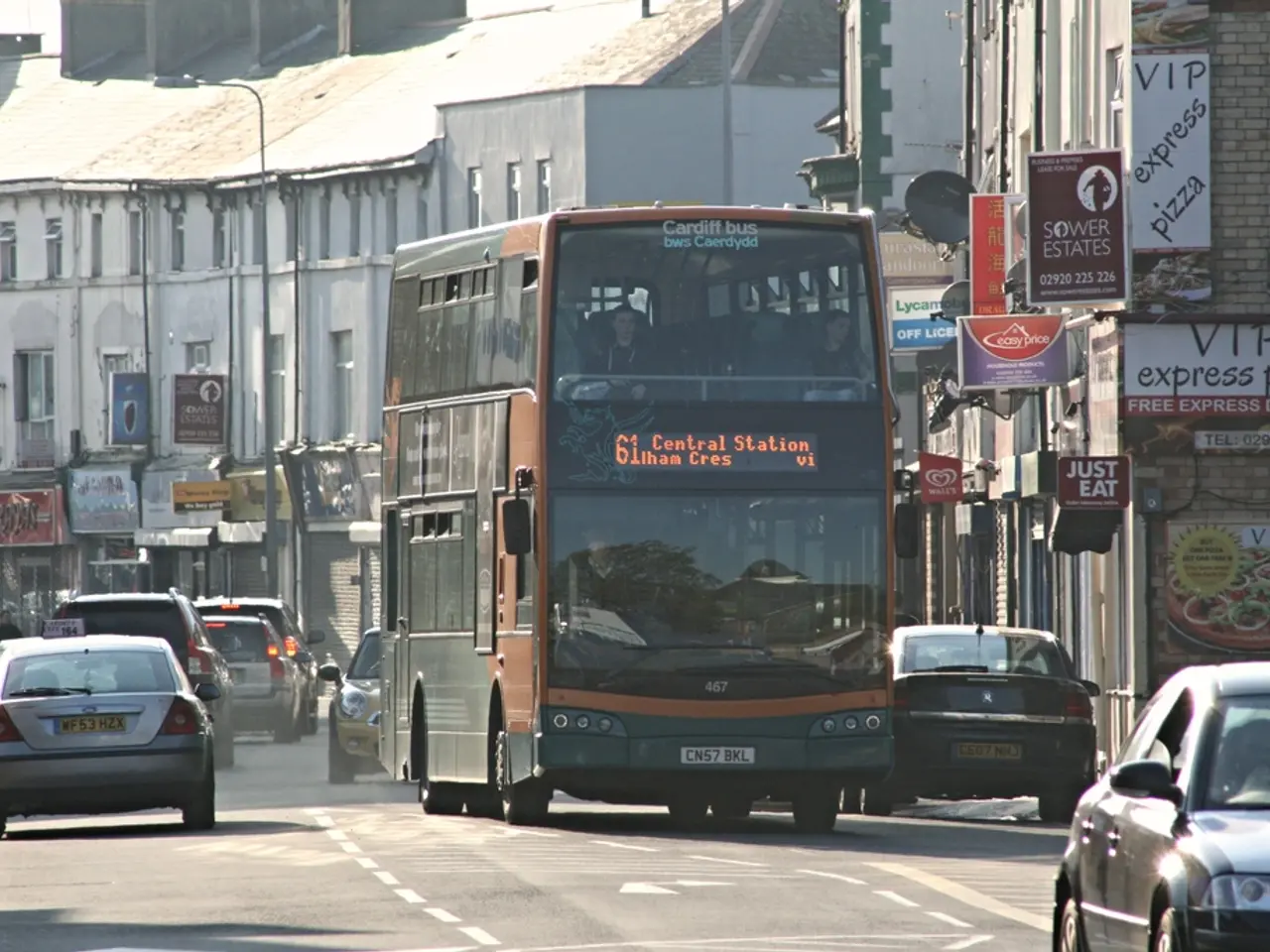Advancement of Sustainable and Community-Based Growth
In the heart of Germany, Augsburg is actively shaping its future as a sustainable city. This transformation, driven by architectural innovation, strategic city planning, and sustainability-focused projects, is outlined in recent initiatives and reports.
One such project is the new Kleines Haus at the Staatstheater Augsburg, designed by HENN. This architectural marvel integrates community engagement and environmental consciousness, with a semi-transparent recycled glass façade and flexible, accessible public spaces. By redefining public space as a "third place" for Augsburg citizens, it embodies both cultural and sustainable values and is set to open by 2030.
Sustainability is not just a standalone project in Augsburg; it permeates city-wide guidelines and digital transformation initiatives. For instance, research and development at institutions like the Technical University of Munich are facilitating the creation of locally adapted, scientifically valid tools for measuring the impact of digital and sustainable city projects. This supports strategic urban management towards sustainability goals.
On a practical governance level, Augsburg aligns with national and regional efforts to address housing and infrastructure that impact sustainability. While there is a nationwide boost in housing construction aimed at affordability, environmental groups have expressed concerns about balancing development with preservation of green spaces crucial for climate resilience. Augsburg’s sustainability reports likely emphasize the need to protect such green areas while facilitating urban growth and energy efficiency.
Augsburg’s commitment to sustainability is further underscored by its partnership with firms specializing in sustainable development, such as Drees & Sommer. This partnership signals continued investment in climate-friendly urban projects, including modernizing housing stock and developing districts with climate and social responsibility in mind.
The city's 2025 Sustainability Report, a significant document in its ongoing commitment to sustainability, features 88 indicators and provides a comprehensive overview of Augsburg's sustainable development efforts. Based on the "Future Guidelines for Augsburg", this report focuses on the implementation and progress of these guidelines, which were worked out in 2015 and adopted in an updated version by the city council in 2021. The "Future Guidelines for Augsburg" serve as the basis for the city's sustainable development goals, ensuring that Augsburg’s urban development not only meets present needs but is prepared for future challenges, including climate change, housing, and social inclusivity.
In 2013, Augsburg was awarded the German Sustainability Award for being the most sustainable large city, a testament to its dedication to this cause. The city's third Sustainability Report, published in 2025 and spanning 250 pages, further solidifies Augsburg's position as a leader in sustainable urban development.
- The architectural design of the new Kleines Haus at the Staatstheater Augsburg, such as its semi-transparent recycled glass façade, reflects the city's commitment to environmental-science and sustainable-living.
- Augsburg's strategic urban management towards sustainability goals is facilitated by research and development at institutions like the Technical University of Munich, which creates locally adapted, scientific tools for measuring the impact of digital and sustainable city projects.
- Augsburg's third Sustainability Report, spanning 250 pages, solidifies its position as a leader in sustainable urban development, and the "Future Guidelines for Augsburg" serve as the basis for its sustainable development goals, ensuring a prepared approach to challenges like climate change, housing, and social inclusivity.



